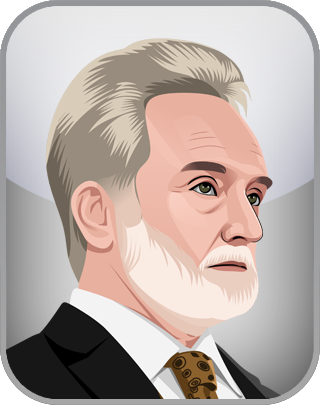Boomer-O-Meter Test
Baby Boomers, born between 1946 and 1964, are often admired for their role in shaping modern society, driving economic growth, and advancing civil rights. Their contributions include technological innovations, the rise of consumer culture, and cultural landmarks. However, they are also criticized for contributing to economic inequality, environmental degradation, and perceived resistance to change. This test will determine whether you have traits and values in common with boomers.
To take the test, enter your input below.
Question 1 of 25
In my career, I’ve followed my heart over what would likely have made me more money.
| Disagree | Agree |
NEXT
The IDRLabs Boomer-O-Meter test is developed by IDRLabs. The IDRLabs Boomer-O-Meter Test is inspired by psychometric methodology and literature by various researchers and organizations.
The test provides feedback such as the following:
The Baby Boomer generation, born from 1946 to 1964, embodies a unique blend of post-war optimism, economic prosperity, and profound social evolution. This group entered the workforce during an era of unparalleled growth, which allowed for early career stability and a culture deeply rooted in employer loyalty and a strong work ethic. Their lives have been marked by monumental cultural shifts, from the civil rights movement to the sexual revolution, with rock 'n' roll symbolizing their youthful defiance and reshaping music and fashion. Despite not being digital natives, boomers have navigated the transition from analog to digital with a resilience that belies the stereotype of technological resistance. They've adapted to computers, the internet, and now smartphones, integrating these tools into their daily lives, albeit at their own pace. Economically, they've been one of the wealthiest generations, enjoying benefits from booming stock markets, rising property values, and robust pension systems. This financial power has made them influential consumers, driving market trends in housing, healthcare, and luxury goods. Politically, boomers have remained active, their significant voting power influencing policies, particularly those affecting retirement and healthcare, shaped by their experiences with various global conflicts and political upheavals. Their engagement stems from a life lived through times of both skepticism and idealism, making them key players in the political arena. Culturally, boomers have left an indelible mark. They've championed causes, pushed for societal changes, and now focus on legacy, often through philanthropy or community service, aiming to leave a positive impact. Their approach to aging also challenges traditional views, with many staying active, learning new skills, and engaging in what's been termed 'active aging'. However, this generation faces its share of criticism. They're often at the center of debates over economic inequality, environmental issues, and the sustainability of the systems they've helped build or maintain. Younger generations sometimes view the economic and environmental legacy of boomers with concern, pointing to high housing costs, educational debt, and climate change as challenges left in their wake. In their later years, health and lifestyle have become central, with industries flourishing around the needs of an aging but active population. Boomers are redefining what it means to grow older, focusing on wellness, continued learning, and leisure, reflecting a desire not just to live but to thrive in their later years. In summary, Baby Boomers are a generation of complexity and contradiction: traditionalists who sparked revolutions, economic beneficiaries accused of leaving fiscal and environmental debts, and adapters to a digital world they didn't grow up in. Their legacy is one of significant achievement in personal freedom, economic growth, and cultural richness, yet it's also shadowed by the challenges of sustainability and ensuring equity for future generations.
The IDRLabs Boomer-O-Meter Test is inspired by psychometric methodology and research into the phenomenon of boomerness. While the IDRLabs Boomer-O-Meter Test is inspired by psychometric methodology and scientific research, it cannot be used to provide clinical assessments or an accurate evaluation of your features. Clinical assessments should always be done in cooperation with a mental health professional. For more information about any of our online tests and quizzes, please consult our Terms of Service.
References
- Investopedia Team. "Baby Boomer: Definition, Age Range, Characteristics, and Impact." Investopedia, 2023.
- Pew Research Center. "Baby Boomers: The Gloomiest Generation." Pew Research Center, 2008.
- Slepian, Rebecca C., and Haley Furman. "Social Media, Wearables, Telemedicine and Digital Health: A Gen Y and Z Perspective." ScienceDirect: Social Sciences, 2024.

